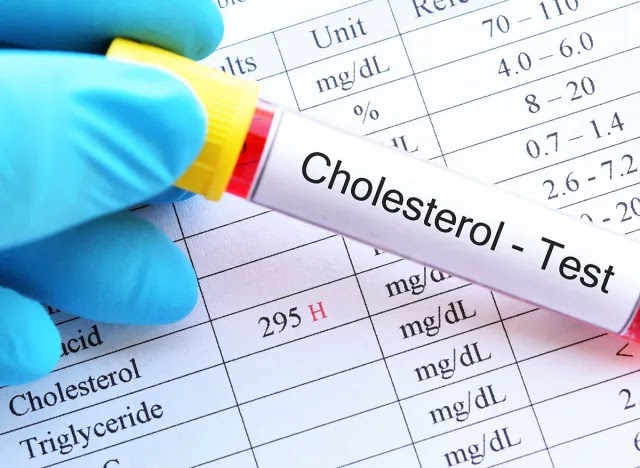An expert explains four ways
your overall health can improve by having good cholesterol.
Not all cholesterol is wrong, but when it's too high (200 mg/dl or
more), it can cause serious health problems, including heart disease or stroke.
High cholesterol can happen to anyone, and the scary thing is there are no
symptoms, which is why it's often called the "silent killer."
Genetics and lifestyle choices play a part in high cholesterol, and a blood
test is the only way to tell if your level isn't in the normal range, which
varies by age. Dr Tomi Mitchell of Holistic Wellness Strategies, a
Board-Certified Family Physician, spoke about the benefits of having good
cholesterol. Continue reading.
1. What is Cholesterol, and Why is it Important?
According to Dr Mitchell, "Cholesterol is a waxy substance
that our bodies produce naturally, providing us energy, and keeping us healthy.
Our digestive system needs a certain amount of cholesterol to produce essential
acids that our stomachs need to break down food. While the right amount of
cholesterol is necessary for good health, too much cholesterol can be harmful.
Because high cholesterol levels can cause clogged arteries and heart disease,
it's critical to keep your cholesterol levels in check and learn how different
foods affect your cholesterol levels. Regular exercise, a nutrient-dense diet,
and following doctor's orders are all good ways to keep your levels in balance.
So the next time you're tempted by a triple cheeseburger or an extra slice of
buttery pie, remember that good cholesterol is the foundation of good health!
Whether you're setting up a new health regimen or need help managing your
current one, make sure that any lifestyle changes you make take your
cholesterol levels into account. After all, keeping a strong heart is something
we all need!"
2. High Cholesterol Warning Signs to Take Seriously
Dr Mitchell reminds us, "High Cholesterol is a common
condition that often has no symptoms. However, becoming aware of potential
warning signs and taking action if you notice them is important. The
development of yellow patches on the skin, known as xanthomas, is one early
symptom of high cholesterol. These patches are most commonly found around the
eyes, eyelids, and elbows. Another symptom to watch for is fatigue. This can be
caused by an underlying heart condition aggravated by high cholesterol. It's critical
to see a doctor if you have sudden or unexplained tiredness. Another symptom
related to high cholesterol is chest pain. This is usually caused by plaque
buildup in the arteries that supply blood to the heart muscle. It's critical to
seek medical attention if you're suffering chest pain. These are just a few of
the potential cholesterol warning signs. If you have any of these symptoms, you
should contact a doctor to get treated and lower your risk of serious health
problems."
3. Reducing Your Risk of Heart Disease
According to Dr Mitchell, "When you lower your blood
pressure, one surprise is a lower risk of experiencing heart disease or stroke.
High blood pressure puts excessive pressure on the cardiovascular system,
increasing the risk of blockages and harming key organs such as the heart,
kidneys, and brain. By reducing your blood pressure with diet, exercise, and
other lifestyle changes, you can reduce this stress and greatly enhance your
cardiovascular health."
4. Improved Quality of Life
"Another surprising thing that can happen when you lower your
blood pressure is an improved quality of life," says Dr Mitchell.
"Consistently high blood pressure is linked with several unpleasant side
effects, including headaches and nausea. However, by reducing your blood
pressure level over time, these symptoms will gradually diminish until they are
no longer an issue. As a result, you will experience less pain and discomfort
in your daily life and be able to enjoy more energy and focus than
before."
5. Improved Immune System
Dr Mitchell reveals, "Yet another surprising thing that can happen when you lower your blood pressure is better immunity to illness. Because of its effect on the membranes of body cells, high blood pressure has been linked to an increased susceptibility to infections like the common cold. As a result, reducing your systolic number can aid in the better functioning of your immune system."






